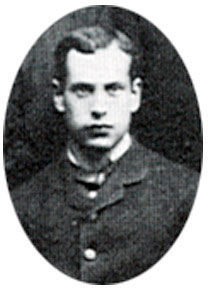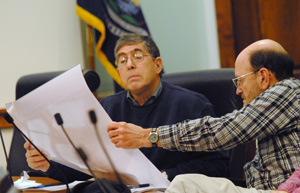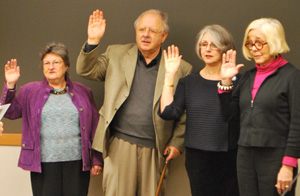What Makes Life Worth Living?
George Dawson packed a lot of living into his 105 years, but it wasn’t until he learned to read and write at the age of 98 that he realized two longtime dreams: reading the Bible and writing his name.

Karessa Dawson Lang talks to reading students at the Family Learning Institute last Saturday about her grandfather, George Dawson, who learned to read at age 98. (Photo by the writer.)
Last Saturday, at Ann Arbor’s Family Learning Institute, Dawson’s granddaughter, Karessa Dawson Lang spoke to a group of reading students about her grandfather.
She told them he’d said, ”People have read the Bible to me all my life, but I wanted to read it for myself.” When he was finally able to read the Bible for himself, Lang told the children, “For him, that was the greatest accomplishment of all time. Besides writing his name. Which was huge.”
The visit to FLI was part of two days of activities for Lang and her sister, Mashelle Dawson, involving their late grandfather’s 2000 autobiography, “Life Is So Good,” the featured book of Ann Arbor/Ypsilanti Reads. The two flew up to Ann Arbor from Texas last week.
Launched in 2003 by the University of Michigan Life Sciences & Society Program and now co-sponsored by the Ann Arbor and Ypsilanti district libraries, Ann Arbor/Ypsilanti Reads promotes reading and civic dialogue through reading and discussing a common book. The program’s theme this year is “What Makes Life Worth Living?” [Full Story]






